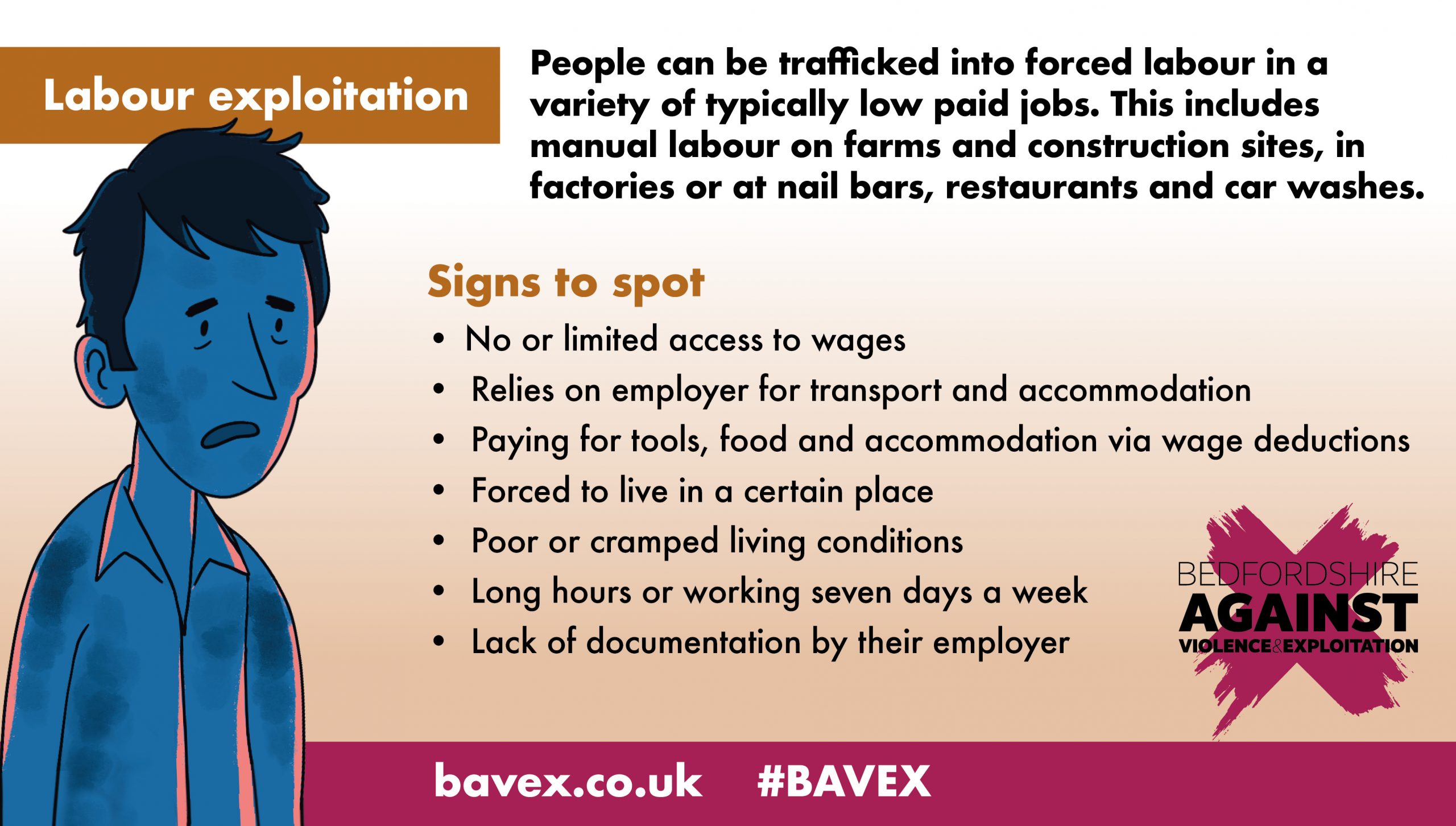Labour Exploitation
Forced labour takes many forms, including debt bondage, trafficking and other forms of modern slavery.
People can be trafficked into or around the UK to carry out hard manual work on farms or in factories. Their passports may be confiscated and they may be made to live in poor conditions.
Common sectors identified for labour exploitation include food processing and packaging, warehousing and logistics, hotels, catering, cleaning and other service industries.
Other places where you may find people being exploited for their labour are construction sites, nail bars, restaurants and car washes.
Victims may be reluctant to tell their story through fear of reprisal or not being believed, a feeling of shame, or because they do not know their rights and the treatment they are entitled to receive.
As well as having injuries, victims may wear the same clothes each day or not be dressed adequately for their work, such as having no protective equipment or warm clothing.
Those with limited English skills are often forced into work. Groups of workers of the same nationality may also be being exploited.
Victims of forced labour may also be victims of debt bondage, where they are tricked into working for little or no money to repay a debt.
An employer or a person controlling them (such as an agent) will use different tactics to trap the victim in an endless cycle of debt which can never be repaid and may even be passed on to their families. Poverty, threats, violence, surveillance and imprisonment are used to make sure they cannot leave or get help.
Debt bondage can also be a significant factor in human trafficking. Victims may be offered a job abroad, to include either ‘free’ transportation or borrowing money from the employer/controller for travel and/or a job finding fee.
Once they have arrived they then find the job either does not exist or is not what was originally offered, and are trapped trying to pay off the debt.

How to get help ?
The Gangmasters and Labour Abuse Authority regulates certain sectors to stamp out labour exploitation. They have lots of information available on their website, and accept reports from the public about this crime.
They are part of the Bedfordshire Anti Slavery Partnership, which is chaired by the Modern Slavery Helpline. You can also report concerns to them about any form of exploitation.
